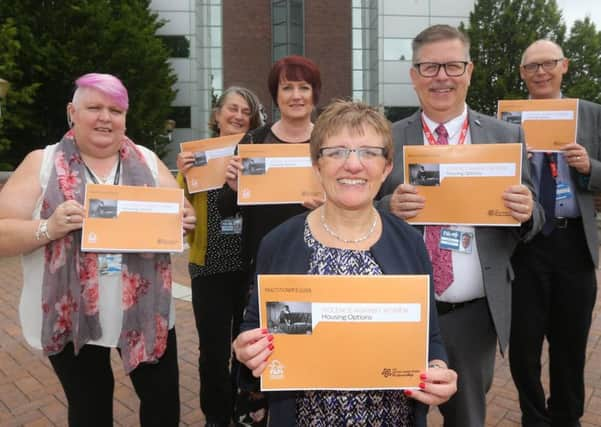New scheme supports domestic abuse victims and reduces homelessness


Studies have shown the two issues can be closely linked and have a significant impact on women and children’s health and wellbeing.
The Women’s Health Improvement Research (WHIR) Project, together with Fife Housing Partnership, has been working with women who have experienced domestic abuse to improve housing support including the reduction of homelessness.
Advertisement
Hide AdAdvertisement
Hide AdProject representatives want to help women and children by ensuring the right advice and support is available when they need it most.
You may also be interested in:
They are also working to keep them in the family home as much as they can if the situation allows.
Labour councillor Judy Hamilton, chairwoman of WHIR, said: “I would like to pay tribute to the Women’s Health Improvement Research Project Team.
Advertisement
Hide AdAdvertisement
Hide Ad“These are an amazing group of women, who from their own experience, researched how women facing domestic abuse are treated within the housing system.
“The research shows that it’s generally the woman and children who leave the home following domestic abuse. And they challenged us to offer better support.”
She said they would like staff to offer good housing advice at an early stage as this can reduce homelessness.
She continued: “It’s important that we provide a range of options to ensure that the woman and any children are safe but also, where possible, to enable them to stay in the family home.
Advertisement
Hide AdAdvertisement
Hide Ad“It’s important that we present women with options wherever possible and support them to make decisions – having options is empowering.”
Last year in Fife there were 4,436 incidents of domestic abuse, an average of 12 a day and 944 sexual crimes recorded.
Figures also show that nationally 11 per cent of homeless people find themselves in this situation because of a dispute within the household: violent or abusive.
Further information can be found on www.fifehousingregister.org.uk/options.
Advertisement
Hide AdAdvertisement
Hide AdThere is also a range of support available for anyone living with abuse through: Fife Council Housing Service 03451 550033; Fife Women’s Aid (women only) 0808 802 5555, the Domestic Abuse and Forced Marriage Helpline (men and women) 0800 027 1234, the Rape Crisis Helpline 0808 801 0302 and the Fife Rape and Sexual Assault Centre 01592 642336.